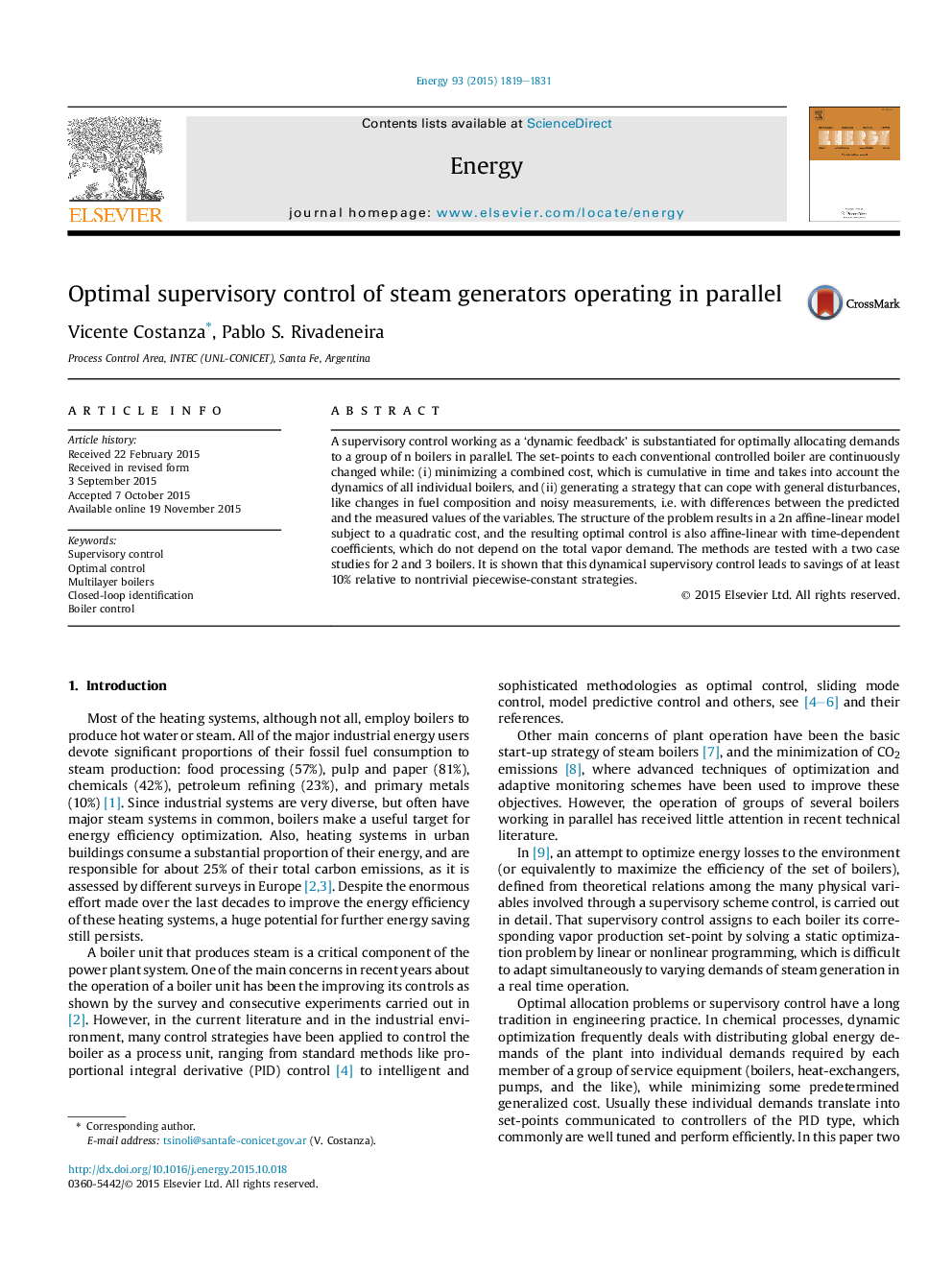| Article ID | Journal | Published Year | Pages | File Type |
|---|---|---|---|---|
| 1731624 | Energy | 2015 | 13 Pages |
Abstract
A supervisory control working as a 'dynamic feedback' is substantiated for optimally allocating demands to a group of n boilers in parallel. The set-points to each conventional controlled boiler are continuously changed while: (i) minimizing a combined cost, which is cumulative in time and takes into account the dynamics of all individual boilers, and (ii) generating a strategy that can cope with general disturbances, like changes in fuel composition and noisy measurements, i.e. with differences between the predicted and the measured values of the variables. The structure of the problem results in a 2n affine-linear model subject to a quadratic cost, and the resulting optimal control is also affine-linear with time-dependent coefficients, which do not depend on the total vapor demand. The methods are tested with a two case studies for 2 and 3 boilers. It is shown that this dynamical supervisory control leads to savings of at least 10% relative to nontrivial piecewise-constant strategies.
Related Topics
Physical Sciences and Engineering
Energy
Energy (General)
Authors
Vicente Costanza, Pablo S. Rivadeneira,
